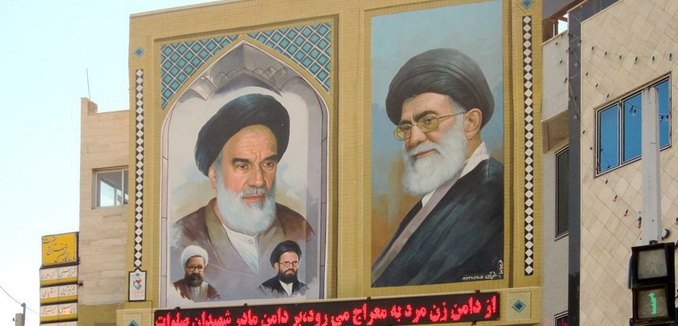The windfall of sanctions relief that Iran will be granted as a result of the emerging nuclear deal will allow the Islamic Republic “to project its power into corners of the Middle East in ways that were never possible before,” Ray Takeyh, a senior fellow at the Council on Foreign Relations, wrote in an op-ed published today in The Washington Post.
Proponents of the view that Iran will not become a more aggressive regional power in the aftermath of a deal ignore how the Middle East has evolved since the Arab awakenings of 2011. The post-colonial Arab state system that featured the dominant nations of Egypt and Iraq is no more. Egypt is too preoccupied with internal squabbles to offer regional leadership while Iraq is a fragmented nation ruled by a Shiite government ostracized from Sunni Arab councils. Iran has embarked on a dramatic new mission and is seeking to project its power into corners of the Middle East in ways that were never possible before. This is not traditional Iranian foreign policy with its sponsorship of terrorism and support for rejectionist groups targeting Israel; imperialism beckons the mullahs, but it is also economically burdensome. Without an arms control agreement and the financial rewards it will bring — from sanctions relief, the release of funds entrapped abroad and new investments — Iran would find it difficult to subsidize this imperial surge. …
The much-discussed terms of the impending agreement with Iran thus offer the theocracy all that it wants. The accord would concede a vast enrichment capacity, as well as accepting both a heavy water plant and a well-fortified underground enrichment facility that the United States once vowed to shutter. It would permit an elaborate research and development program and would likely rely on an inspection regime that falls short of indispensable “anytime, anywhere” access. In the meantime, the sanctions architecture will be diminished, and the notion of ever “snapping back” sanctions into place once they are lifted is delusional. And because the agreement itself would be term-limited, there would be no practical limits on Iran’s nuclear ambitions upon its expiration.
Takeyh stated that the Iranian regime could use some of the billions it is set to receive by following what he calls the “China model,” where society is provided a measure of economic freedom even as political freedoms are stripped away. He also noted that despite having a reputation for being moderate, the government of President Hassan Rouhani “stands as one of the most repressive in the post-revolutionary period.”
Considering how close the regime was to collapse in 2009, Takeyh wrote, the economic windfall that will enable the government to expand its sphere of influence while keeping the institutions of repression intact “would be no small achievement for Iran’s emboldened rulers.”
Takeyh, by himself and with co-authors, has criticized other aspects of the emerging nuclear deal, including the sunset clause, which would allow Iran unlimited enrichment capacity when the deal expires; insufficient time to respond to Iranian violations of the emerging deal; and allowing Iran to keep its centrifuge infrastructure intact.
[Photo: David Stanley / Flickr ]




